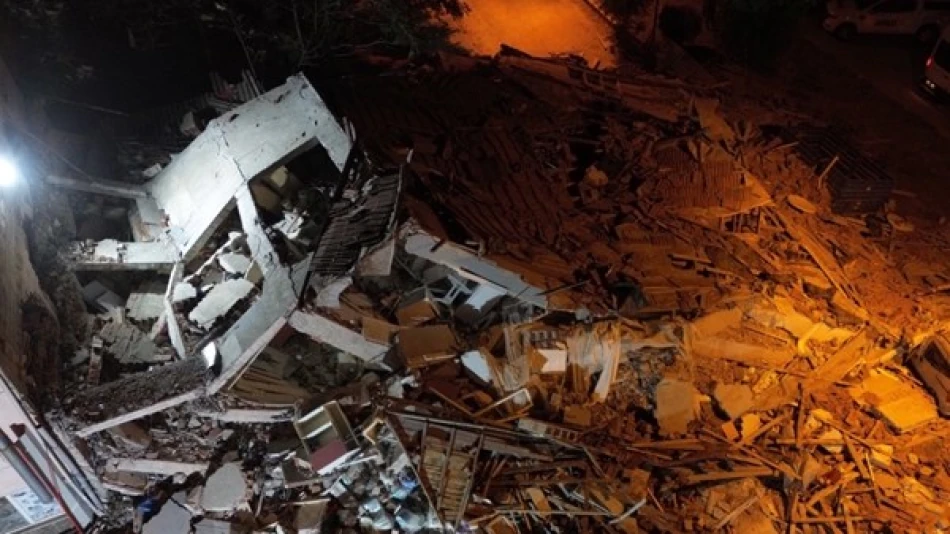
Devastating Earthquake Strikes Turkey, Claiming Lives and Collapsing Buildings
Turkey Faces New Seismic Reality as 6.1 Earthquake Strikes Near Istanbul
A magnitude 6.1 earthquake struck Turkey's northwestern Balıkesir province on Sunday, killing at least one person and injuring 29 others while collapsing more than ten buildings. The tremor's proximity to Istanbul—felt by residents 200 kilometers away in the megacity of 16 million—underscores Turkey's ongoing vulnerability to seismic disasters less than a year after the devastating February earthquakes that claimed over 50,000 lives.
Immediate Impact and Response
The earthquake's epicenter in the town of Sındırgı triggered a swift emergency response as Turkey's Disaster and Emergency Management Authority (AFAD) reported multiple aftershocks, including a significant 4.6-magnitude tremor. Authorities immediately warned citizens to avoid damaged buildings, a precaution that reflects hard-learned lessons from previous seismic events.
The fact that Istanbul residents felt the earthquake highlights a critical concern for Turkish authorities. As the country's economic powerhouse and most populous city, Istanbul sits precariously near major fault lines, making any seismic activity in the region a matter of national significance.
Turkey's Seismic Vulnerability
A Nation Built on Fault Lines
Turkey's position atop major geological fault systems makes it one of the world's most earthquake-prone countries. The North Anatolian Fault, which runs east-west across northern Turkey and passes near Istanbul, represents a constant threat to the nation's infrastructure and population centers.
This latest earthquake serves as a stark reminder that Turkey's seismic challenges extend far beyond the southeastern regions devastated by February's catastrophic events. The country's entire geological foundation remains active and unpredictable.
Lessons from Recent Disasters
The February 2023 earthquakes that devastated southeastern Turkey and northern Syria exposed critical weaknesses in building standards and emergency preparedness. Since then, Turkish authorities have intensified efforts to assess structural integrity across the country, particularly in major urban centers.
Sunday's earthquake, while significantly less destructive, demonstrates that Turkey's seismic risks require constant vigilance and investment in resilient infrastructure. The collapse of more than ten buildings from a 6.1-magnitude quake raises questions about construction standards in regions outside the primary disaster zones.
Economic and Social Implications
Istanbul's Vulnerability
The tremor's reach to Istanbul carries profound implications for Turkey's economy. The city generates approximately one-third of Turkey's GDP, and any major seismic event affecting the metropolis would have catastrophic economic consequences extending far beyond national borders.
Urban planners and seismologists have long warned that Istanbul faces an estimated 70% probability of experiencing a major earthquake within the next 30 years. Sunday's event, while centered 200 kilometers away, serves as a preview of the challenges facing this densely populated urban area.
Infrastructure Resilience
Turkey's ongoing struggle with earthquake preparedness reflects broader challenges facing developing nations in seismically active regions. The country has made significant investments in early warning systems and building codes, yet enforcement and retrofitting of existing structures remain ongoing challenges.
The relatively contained damage from Sunday's earthquake may indicate improvements in some regions, but the building collapses suggest that comprehensive structural assessments and upgrades remain critical priorities for Turkish authorities.
Most Viewed News

 Layla Al Mansoori
Layla Al Mansoori






